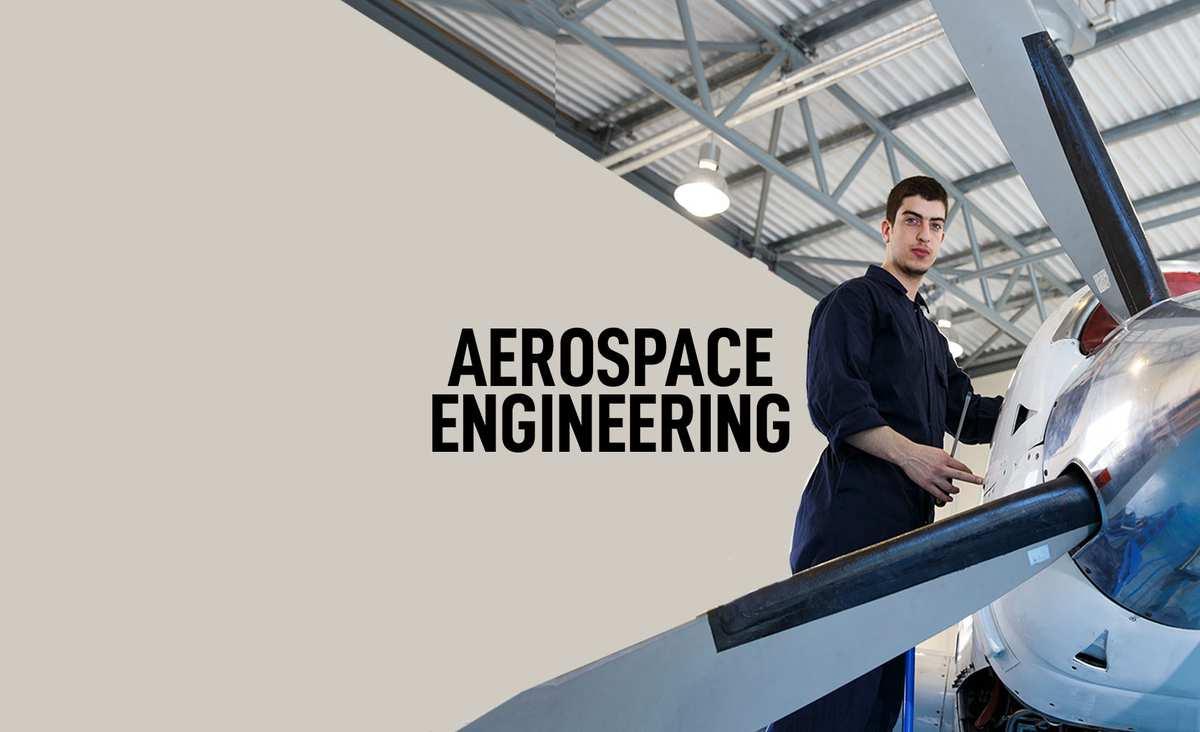About Aerospace Engineering

Aerospace Engineering
What is Aerospace Engineering?
Aerospace Engineering is an engineering discipline that encompasses the design, analysis, testing, development, and production of air and space vehicles such as fixed-wing aircraft, rotary-wing helicopters, rockets, missiles, and satellites, as well as the maintenance, repair, and overhaul of these vehicles. This field includes the fundamental engineering areas that enable air and space vehicles to operate safely, their interaction with the environment, and their functional principles. Key areas of Aerospace Engineering include aerodynamics, which studies the interaction of air vehicles with their environment; structures and materials, which analyze the effects of forces acting on vehicles during motion; propulsion systems, which provide the thrust necessary for vehicle movement; and flight mechanics and control, which ensure stable and controlled motion. Students in Aerospace Engineering programs gain knowledge and skills to solve various technical problems through courses on fundamental engineering subjects such as thermodynamics, statics, dynamics, and strength of materials, alongside advanced courses such as applied elasticity, aircraft and space structures, composite materials, automatic control, aerodynamics, and propulsion systems. Students become proficient in modern engineering tools, including computer-aided design, simulation, modeling, and analysis techniques, enabling them to develop safe, durable, and efficient air and space vehicles. Graduates of Aerospace Engineering can contribute to groundbreaking projects in industries such as defense, civil aviation, space exploration, and satellite technologies, leveraging their expertise and skills to drive technological advancements.
Employment Opportunities and Career Prospects for Graduates?
Employment Opportunities and Career Prospects for Graduates Graduates of Aerospace Engineering have a wide range of job opportunities, spanning from the defense industry to civil aviation, space research, and Research and Development (R&D) firms. They can contribute to advanced projects in the defense industry, such as unmanned aerial vehicles (UAVs), missile, and radar technologies, and participate in operational processes like aircraft maintenance, performance analysis, and safety management in airline companies. In R&D firms, they can work on innovative projects involving autonomous systems, artificial intelligence, and materials science. Graduates may also serve in civil aviation authorities, focusing on flight safety and management, or pursue academic careers to contribute to scientific research. Additionally, they can specialize in modeling and real-time control systems by working at companies developing aviation simulations and avionics software. In companies engaged in the design and production of air vehicles, they can take part in manufacturing engineering, structural analysis, and testing processes. Moreover, they can contribute to sustainable projects in the energy and renewable resources sectors by developing alternative energy solutions. Given the accelerating pace of space exploration in recent years, the demand for skilled professionals in aerospace engineering is expected to grow significantly. With these diverse career opportunities, graduates of Aerospace Engineering can participate in groundbreaking projects that shape the future of technology.
Why OSTİMTECH? What Are the Benefits?
OSTİM Technical University, Department of Aeronautical and Astronautical Engineering, aims to train qualified engineers for the aviation and aerospace industries. The department emphasizes the continuous development of students through a unique assessment and evaluation system applied to every course. By combining the capabilities of a design and production-oriented university with theoretical and practical courses, it prepares students to meet current industry demands. The education provided not only offers a comprehensive technical foundation but also fosters innovative thinking and problem-solving skills. Students gain theoretical knowledge in core subjects such as aerodynamics, flight mechanics, structural and materials science, while reinforcing their learning through practical applications and laboratory work. This approach ensures that graduates are well-equipped to contribute to the design, analysis, production, and testing of air and space vehicles. They develop proficiency in modern software and simulation tools used at all stages of engineering projects and learn techniques such as computer-aided design (CAD) and modeling. Specializing in avionics systems, system dynamics, control, and optimization, students acquire the skills needed to work on high-tech projects such as unmanned aerial vehicles (UAVs), space rockets, and satellites. Additionally, advanced mathematical analysis and data processing capabilities enable students to become experts in the modeling and simulation of complex systems. They enhance their interdisciplinary collaboration and teamwork skills, gaining experience in solving complex engineering problems and managing projects. Students are equipped with the ability to lead R&D and innovation-driven projects, managing entire processes from design to production. Graduates also stand out in the global job market thanks to their critical thinking, communication skills, and commitment to ethical values. These competencies position them as creative and solution-oriented professionals who drive innovative projects in the aerospace industry. With OSTİM’s strong collaboration with industry, public, and private sectors, students receive education, research, and application training of international standards. This enables them to play an active role in aerospace engineering with innovative technology and entrepreneurial initiatives.